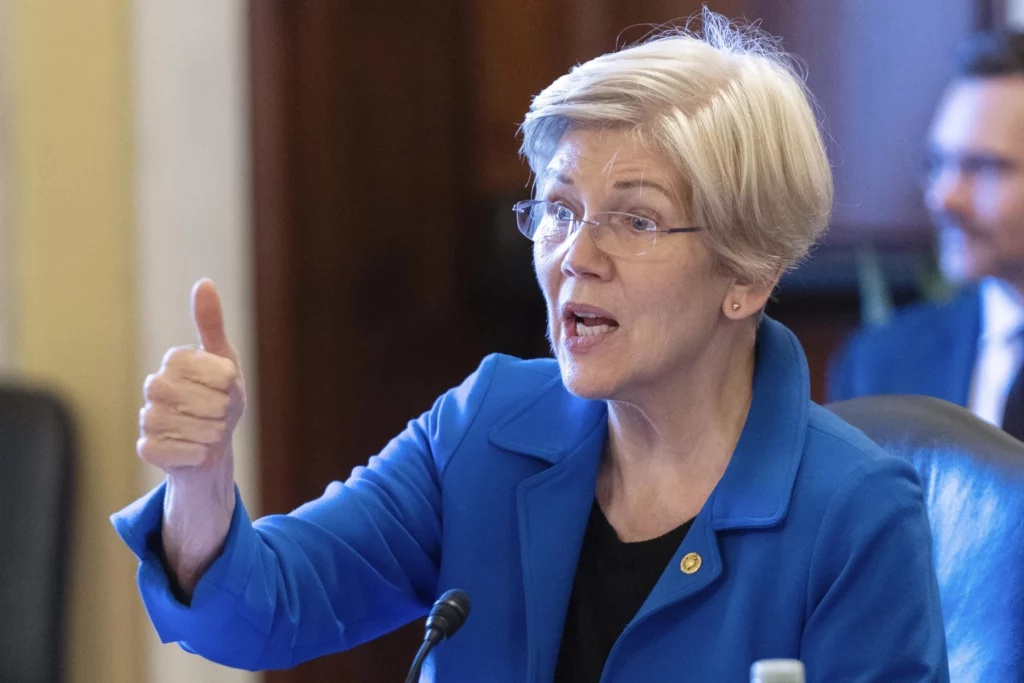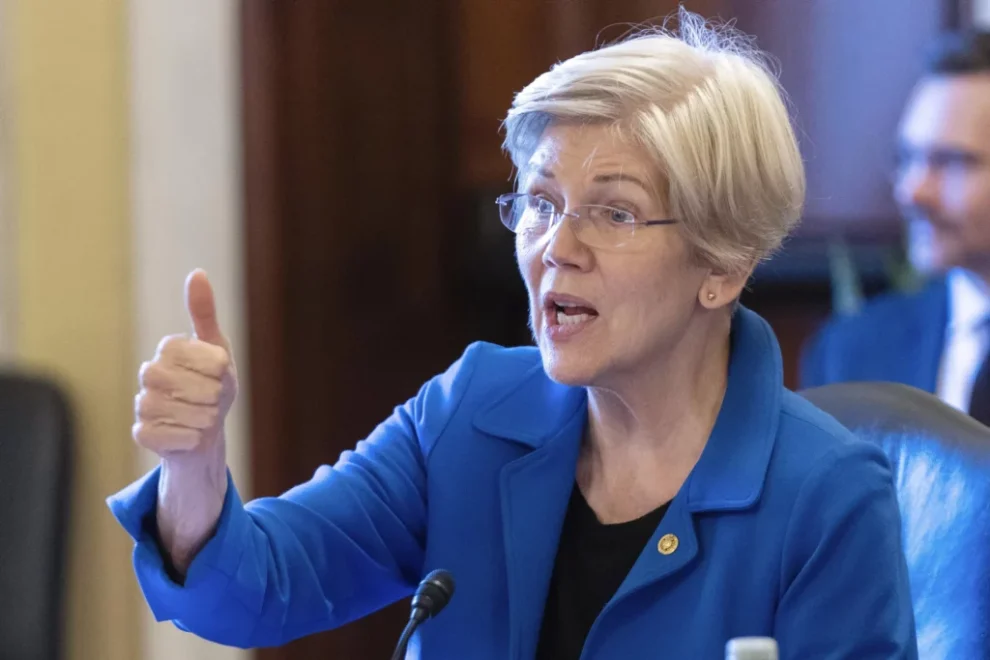A progressive watchdog group shaping Senate Democratic-led proposals targeting the private equity industry fills its war chest with millions of dollars from donors who get rich off lucrative investment funds, documents show.
Private Equity Stakeholder Project, a group based in Chicago, has established itself as one of the top outside allies of Sen. Elizabeth Warren (D-MA) and other lawmakers launching investigations “to hold private equity accountable” for “sucking money out of the rest of the economy.” In recent years, senators have cited PESP in press releases unveiling corporate crackdown bills, while the group’s research has helped form the basis of congressional letters demanding information from companies.
But PESP, which blames executives for not adhering to environmental, social, and corporate governance policies that conservatives call “woke,” earns much of its revenue from foundations that rely on private equity to boost their assets. At least 10 of PESP’s deep-pocketed donors have more than $10 billion stashed in private equity funds, according to a Washington Examiner analysis of IRS tax records and financial audits of the foundations.
The fact that PESP keeps its lights on thanks to donors who take advantage of private equity is an apparent irony, said Will Hild, who runs Consumers’ Research, a conservative watchdog group opposing ESG. His group says on its website that “political activists use ESG as a way to drive a progressive agenda” that harms businesses.
“You can’t make this stuff up,” Hild said. “Over and over again, we see the Left running the same grift.”

PESP, a nonprofit group that formed in 2017, is technically called the Financial Services Stakeholder Project, according to IRS records. The Chicago-based group aims to pressure private equity firms to “lay out concrete goals for hiring BIPOC, LGTBQ+, women, and workers with disabilities,” and recently took aim at firms such as Blackstone and the Carlyle Group in a “climate risks” scorecard report on their fossil fuels industry investments.
“This scorecard and report reveals the top 21 private equity firms invested in oil and gas and includes a set of climate demands to hold private equity accountable,” PESP said in the report, faulting the firms for having “an outsized role in accelerating the climate crisis.” PESP has argued that former President Donald Trump “calls for violence” and slammed Blackstone CEO Stephen A. Schwarzman for supporting him.
In turn, the progressive watchdog also has the ear of top lawmakers, with Warren co-hosting a panel with PESP in Washington, D.C., on private equity in healthcare this summer, the Washington Examiner reported. Upon Warren introducing a bill in June with Sen. Ed Markey (D-MA) “to root out corporate greed and private equity abuse in the health care system,” Chris Noble, PESP policy director, was quoted in Warren’s press release calling the legislation “a necessary and timely solution to that problem.”
Still, a Washington Examiner analysis of tax records found that many of PESP’s supporters are deeply invested in private equity funds — which are shares in companies that are not traded on public stock exchanges.
The Robert Wood Johnson Foundation, which has poured $1 million into PESP in recent years, invests around $4 billion of its $13.6 billion in assets in private equity, according to the foundation’s 2023 independent financial audit. The Ford Foundation, a top left-wing grantmaker that awarded $900,000 to PESP between 2020 and 2024, disclosed on its 2022 IRS tax return that it invested $4.9 billion in private equity.
Moreover, the Surdna Foundation, a group founded by the late congressman John Emory Andrus, reported holding $481 million in private equity and venture capital on its 2023 financial audit. That sum makes up 40% of its assets.
“The Private Equity Stakeholder Project’s independent, carefully researched analysis of private equity’s impacts on communities, workers, patients, renters, and the planet is more important now than ever,” said PESP spokesman Matt Parr. He did not address the investments of PESP’s donors.
To Gordon Lightfoot, director of the pro-free market Pinpoint Policy Institute, the PESP donor dynamic is a “classic case of hypocrisy.”
“PESP attacks private equity as the epitome of what’s wrong with modern capitalism, and then turns a blind eye when they personally benefit from the returns those funds generate,” said Lightfoot. “The fact that PESP’s major foundation donors are all heavily invested in private equity exposes how incoherent and foolish their constant attacks on this industry truly are.”
Donors to PESP that disclose investments in private equity also include the Rockefeller Brothers Fund, a group tied to eBay founder Pierre Omidyar, the California Endowment, and other foundations.
PESP has received grants from an organization funded by Democratic megadonor George Soros, whose Soros Fund Management group invests in private equity.
CLICK HERE TO READ MORE FROM THE WASHINGTON EXAMINER
Billionaire philanthropists John and Laura Arnold also donate hundreds of thousands of dollars to PESP while investing through Blackstone in private equity, among other investments. A former Enron executive, John Arnold founded Centaurus Advisors, a defunct hedge fund.
“Arnold Ventures has long been committed to supporting research to improve health care affordability, including how to address the role of private equity,” said a spokesperson for Arnold Ventures, a limited liability corporation overseeing the Laura and John Arnold Foundation.
























